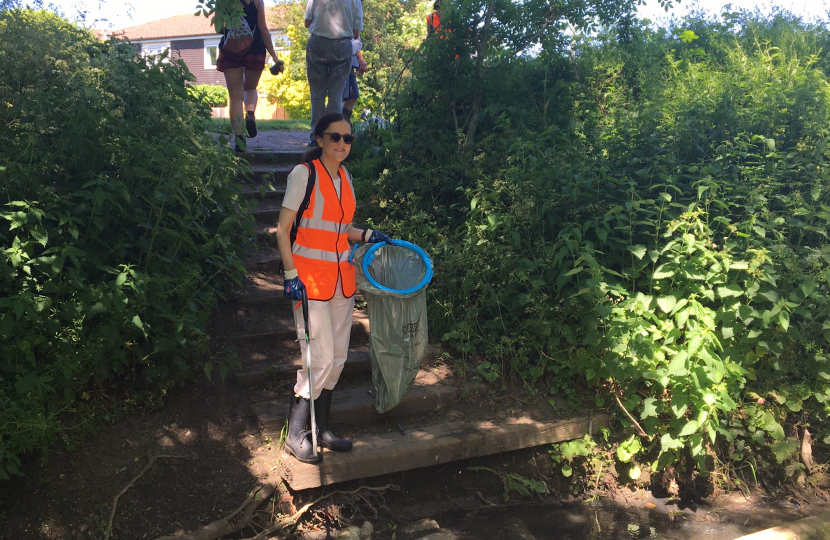
Theresa Villiers has published the following article on water quality and the need to crack down on discharge of sewage into waterways at times of heavy rain.
“In 2020 when I brought forward the Environment Act to Parliament, improving water quality was a core part of the tough new system of legally binding targets it was due to introduce. I understand the huge public concern about storm overflow discharges.
Since it was created in Victorian times, our sewage treatment network has discharged into the sea and waterways at times of very heavy rain, as a means to prevent water and sewage backing up and flooding people’s homes. So for many decades, the water companies (and their public sector predecessors) have been permitted to do this.
In 2021, I backed a Government amendment to the Environment Bill to impose a legal duty on water companies to progressively reduce the adverse impact of sewage discharges on the environment and public health. This is the first time such a duty has been part of our law in this country.
As a result, we now have the strongest rules ever in this country on storm discharges, and we have tougher restrictions than the ones we inherited from the EU (where such overflows are a routine part of the sewage system).
Our track record in the UK on this matter compares favourably to many European countries. For example, according to the German statistical company, Statista, we are doing better on water quality than France, Germany, Spain, Ireland, Belgium, the Netherlands, and Italy. One of the reasons why there has been increased awareness of this issue in the UK is because of Government efforts to improve transparency and monitoring.
As required by the Environment Act, Ministers recently published the Storm Overflows Discharge Reduction Plan. I welcome this plan which will require water companies to deliver their largest ever environmental infrastructure investment - £56 billion capital investment over 25 years - into a long-term programme to tackle storm sewage discharges.
Under the measures set out in the plan, water companies will have to achieve targets to massively reduce discharges through measures such as increasing the capacity of their networks. Failure to meet these targets could see companies face substantial fines or be required to return money to customers. Further, they will have to publish discharge information in near real time, as well as committing to tackling the root causes of the issue by taking steps to improve surface water drainage.
The plan also covers wider expectations for the water industry, to ensure their infrastructure keeps pace with increasing external pressures, such as housing growth and climate change and to ensure our water supplies remain clean and secure for the future.
I know how important cleaning up our bathing waters are for my constituents. I have discussed this issue with Environment Secretary, George Eustice, and with our local water company Thames Water. I have visited the Thames Water plant in Edmonton which processes sewage from Barnet to see their work at first hand.
I am regularly in contact with Thames Water, the Environment Agency and Barnet Council to raise concerns about pollution waterways in my constituency such as Dollis Brook and Pymmes Brook. I’ve also been part of litter-picks around our waterways.
I will be keeping up the pressure for further progress on cracking down on storm overflows."


